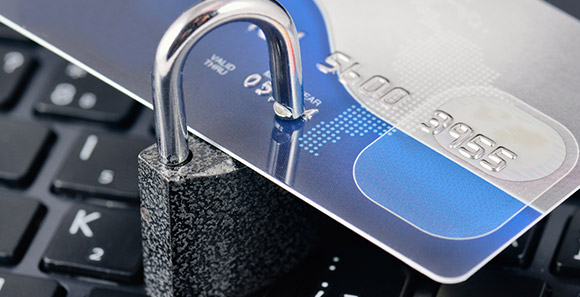10 Tips To Mitigate Fraud On Your Card
September 30, 2014

If you own a debit or credit card, there is strong possibility that you have experienced or will experience fraudulent activity on your card. While fraud can occur with even the most cautious consumers, there are precautionary steps you can take to minimize your risks.
- Limit the number of cards in your wallet. Should you lose your wallet, it is your responsibility to contact the financial institution linked with each card. Plus, if you only carry a few cards, you’re more likely to notice if one is missing.
- Be vigilant. Use only reputable ATMs and when entering your PIN, make sure no one is looking over your shoulder.
- Look before you swipe. If the card reader looks suspicious in any way, it could have a skimming device attached to it. A skimming device is an unauthorized attachment to a card reader that can capture all of the information associated with your payment card.
- Take photos. Take photos of the front and back of the cards you keep in your wallet and store them in a secure location at home. Should you lose your wallet, you will have access to the card numbers so you can contact your financial institution and block the cards immediately.
- Monitor your account. With automatic account alert options, it’s easier than ever to be informed at all times about charges clearing your account. Most financial institutions offer email and/or test eAlerts that notify account holders about transaction activity. At Goldenwest, you can enroll in several eAlerts options through our online banking platform. Fraudulent charges cannot be disputed after 90 days, so check your account often.
- Shop with reputable retailers. You may have confidence when you walk into a local retailer and make a purchase, but what do you know about the online retailers you visit? The tiny lock icon you see in the URL when “checking out” from an online retailer doesn’t 100% guarantee the company won’t have fraud issues, but it does indicate the retailer is making significant efforts to protect your information.
- Track your spending. Monitor card purchases with an app on your mobile device, logging in to the online banking portal, or recording expenditures in a check register.
- Never “share” your card. Per Visa regulations, if a card owner “shares” their card with someone else, charges are no longer disputable. You entered into the agreement with your financial institution, which makes you ultimately responsible for all transactions. If you have children or other people you trust that may need a payment card, purchase them their own reloadable Visa card that is not tied to your account or credit line.
- Credit cards can be a “safer” option. Fraudulent activity on your payment card account is never a good thing, but when it happens on your debit card your entire checking account can be depleted. It may take your financial institution up to 10 days to issue a provisional credit on losses for your checking account – leaving you with few options for cash. By choosing a credit card for purchases, your checking account won’t be impacted by fraud. However, you must be diligent about paying off the entire balance each payment cycle to avoid incurring interest fees.
- Provide accurate contact information. Your financial institution needs a good phone number (or two) and an e-mail address to notify you with fraud alerts and activity. In the event of a large-scale fraud alert, it’s important that you can be easily contacted.
Author: August Klug
Assistant Manager of Payment Services

Comments